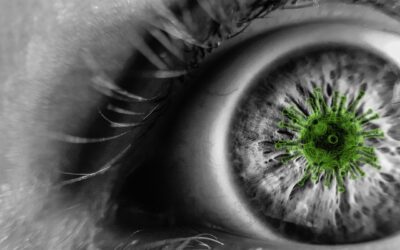Dry eyes can be very irritating and bothersome. Symptoms caused by dry eyes include intermittent blurred vision, grittiness, and redness. The underlying causes of dry eyes vary, but one of the biggest causes of dry eyes is inflammation in the eyes and eyelids. When the eyes are inflamed, there are fewer tears produced, the tears are less effective, and the eyes tend to dry out quickly. In these cases, it is possible to treat dry eyes and the accompanying symptoms with medications that reduce the amount of inflammation in the eyes. There are prescription eye drops that are available for both short-term and long-term use for treating inflammation-causing dry eyes.
Symptoms of Dry Eyes
Beyond a true feeling of dryness, dry eye may cause other or related symptoms. These can include feeling gritty, a sensation like something is in the eye, the need to blink frequently, blurred vision, redness, and eye pain.
Not all of these symptoms have to be present for the eyes to be suffering from dryness. In most cases, there are at least a few of these symptoms present at least periodically.
How Inflammation Impacts the Eyes
Inflammation of the eyes and eyelids can lead to many changes that cause problems such as dry eyes.
If the eye itself is inflamed, it can become red due to the swelling of the blood vessels in the eye. These blood vessels carry inflammatory response proteins and cells that respond when an area of the body is inflamed.
This can cause redness and a diversion of blood toward the vessels in the front of the eye.
If the eyelid becomes inflamed, it too can become red and swollen. The eyelid can also damage the oil glands which are located within the eyelid.
These glands are responsible for secreting oil into the tear film and improving the duration of the tears between blinks.
If there is excessive inflammation in the eyelid, these glands can become shortened, bent, or die off completely.
Treating Inflammatory Dry Eye
If the dry eye symptoms are due to inflammatory causes, it is possible to treat the dryness with prescription eye drops.
These drops are designed to reduce inflammation and therefore remove the root cause of the dry eye.
For a short period of time, a steroid eye drop can be used to reduce inflammation that is particularly bothersome or worse than normal.
This is a good option for a flare-up of dry eye that is more severe and symptomatic than normal. Using a steroid eye drop for a few days to a week can allow the eye to heal and the symptoms will subside.
However, if dry eyes and inflammation are more of a long-term problem, there are anti-inflammatory medications that can be used for extended periods of time.
These medications include Restasis, Xiidra, and Cequa. Each of the medications is an anti-inflammatory medication that acts as an immunomodulator.
These medications reduce inflammation by controlling the response of the immune system in the eyes.
Over time, the usage of these medications can improve dry eye symptoms greatly.
Our eye doctors at Eye Theory in Houston, TX excel in the prescription of contact lenses, glasses and various eye diseases. Call our optometrist at 832.831.7386 or schedule an appointment online if you would like to learn more about dry eyes. Our eye doctor, Dr. Jonathan Tsao, provides the highest quality optometry services and eye exams in the Midtown, Downtown, Museum District, Montrose, East Downtown, and Southside Commons (Southside Place) vicinities of Houston, Texas as well as our newest location in the Stone Oaks neighborhood of San Antonio, Texas.





